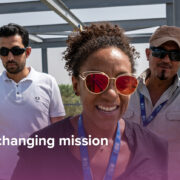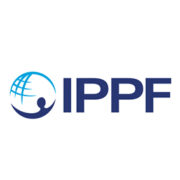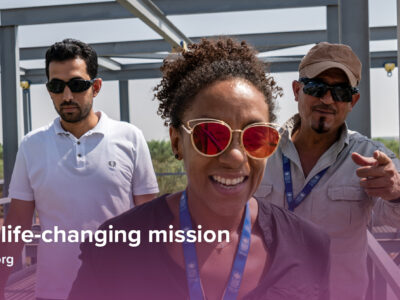Background
UN Women, grounded in the vision of equality enshrined in the Charter of the United Nations, works for the elimination of discrimination against women and girls; the empowerment of women; and the achievement of equality between women and men as partners and beneficiaries of development, human rights, humanitarian action and peace and security. In Nigeria, UN Women works to support the Government’s national development agenda, which prioritizes the empowerment of women and girls and their contribution to all areas of economic, political, and social development. The objective of building and sustaining peace and security across the country is critical for Nigeria, which faces several security challenges including the Boko Haram insurgency in the Northeast, the Farmers/Herders conflict in the Middle Belt, and conflicts over natural resources in the oil-rich Niger Delta region. Ongoing efforts to address these conflicts often overlook women’s role and contributions. Women are often seen only as victims of conflicts that need to be protected rather than agents of change for peace. This leaves untapped, the potential and capacities of women whose contributions can be harnessed to promote transformative change and sustainable peace.
Through the previous phase of the Women Peace and Security (WPS) Programme, UN Women enhanced the effective participation of women in conflict prevention and peacebuilding and improved the public perception on the role of women in peace and security at the national level and in the target states of Bauchi and Benue. The Programme registered significant achievements against its set results framework, including developing State Actions Plans and Women Mediators Networks in the target States, the development of a Legislative Guide on Women, Peace, and Security and capacity enhancement of legislators in the State Houses of Assembly, among others. The Programme has also created the conditions for related WPS programming on the security sector, Violence Against Persons (Prohibition) Act (VAPP) implementation, and women’s mediation capacities and utilization.
The second phase of the Programme (2022-2024) is designed to consolidate on the successes recorded under the first phase with focus on the following intervention areas:
- Support to the development of Nigeria’s 3rd National Action Plan (NAP) on Women, Peace and Security, including mechanisms to enhance coordination in implementation, monitoring and reporting;
- Enhance legislative engagement and actions on Women, Peace, and Security;
- Support to women mediation capacities, networks, and actions for conflict prevention and peacebuilding;
- Enable secured environment for women’s leadership and participation in politics.
UN Women seeks to recruit a National Programme Officer to support implementation of the Programme in target areas (Adamawa, Bauchi, Benue, Gombe, Kaduna and Plateau states) for the remaining part of 2024. Under the strategic guidance of the Country Representative, overall supervision of the Deputy Representative and day to reporting to the WPS Team Lead in Abuja, the Programme Officer exercises overall responsibilities for planning, implementing, and managing UN Women interventions under the WPS thematic area in target areas. She/he works in close collaboration with the programme and operations team, UN Women HQ staff, Government officials, multi and bi-lateral donors and civil society to ensure the sound coordination of activities’ implementation, facilitate the smooth and effective implementation of the Programme in the target states, and provide continuous supervisory and coaching support to implementing partners and WPS structures established in the target states.
Duties and Responsibilities
Design and develop programme strategies in area of WPS
- Design and formulate programme implementation strategies to guide the roll-out of the UN Women’s WPS programme, Phase II;
- Oversee the implementation of the Programme’s inception phase activities including the inception workshop, advocacy visits to stakeholders, identification of target beneficiaries and the finalization of the Programme’s implementation plans, among others;
- Undertake ongoing research and analysis to inform the refinement of programme implementation strategies;
- Draft inputs to country strategy documents, briefs, policy dialogue and other documents related to WPS.
Manage the implementation and management of the WPS programme
- Finalize the annual workplan and budget and manage their implementation in accordance with the program document;
- Facilitate the technical implementation of the programme and ensure synergies with other teams;
- Oversee the timely submission of implementing partners’ financial and narrative reports;
- Provide guidance to partners on Results Based Management tools and performance indicators, in collaboration with the M&E Specialist;
- Organize the Project Steering Committee, project review and/or evaluation meetings, as needed.
Manage technical assistance and capacity development to project/programme partners
- Build and manage relationships with national partners to support the implementation and expansion of the WPS Program, respond to any potential problems;
- Provide guidance and support to implementing partners to enhance programme implementation and reporting;
- Identify capacity building needs of partners and lead the coordination of technical assistance, mentoring, training and capacity development initiatives targeted to partners.
Manage the monitoring and reporting of the programme/ project
Under the guidance of, and in collaboration with the M&E Specialist and WPS Team Lead:
- Regularly monitor programme implementation and finances, using results-based management tools;
- Monitor the implementation of activities and spending of funds by partners and conduct regular monitoring visits;
- Prepare and timely submit quarterly and annual progress reports, including reports to donors;
- Provide inputs from WPS programme activities and results to inform corporate reporting requirements.
Manage the people and financial resources of the WPS programme
- Manage the programme budget and draft financial reports;
- Oversee programme financial monitoring, including budget revisions, and expenditure tracking and reporting;
- Oversee and monitor the allocation and disbursement of funds to implementing partners
- Oversee recruitment processes, as necessary;
- Oversee the work of programme staff under direct supervision and provide mentorship and coaching support as necessary.
Build partnerships and support in developing resource mobilization strategies
- Develop and implement partnerships and resource mobilization strategies;
- Review donor funding trends and priorities and identify opportunities for resource mobilization;
- Prepare substantive briefs on possible areas of donor cooperation and identify opportunities for cost sharing.
Contribute to inter-agency coordination on WPS to achieve coherence and alignment of UN Women programmes with other partners in the country
- Provide technical support to the Representative and Deputy Representative on inter-agency coordination related activities by attending meetings, events, and participating in groups and committees as needed;
- Coordinate with other UN agencies, government departments, donors and NGOs to ensure the projects’ capacity development programme is harmonized and aligned with other in-country efforts.
Manage advocacy, knowledge building and communication efforts
- Develop and review background documents, briefs and presentations related to the WPS Programme;
- Represent UN Women in meetings and policy dialogues on issues related to WPS as necessary;
- Develop advocacy strategies and oversee their implementation;
- Organize major advocacy campaigns, trainings, workshops and knowledge products to share lessons on the WPS Programme;
- Identify best practices and lessons learned to guide programme improvement and strategy planning;
- Develop knowledge management strategies, products and methodologies on WPS;
- Ensure documentation of the WPS Programme implementation process and products, in accordance with UN Women guidelines;
- Contribute to the sharing and exchange of information and WPS knowledge products internally and externally through the programme.
Key Performance Indicators
- Timely and quality programme design and inputs to Strategic Note;
- Timely and quality of programme delivery in line with budget and workplans, and in line with all UN Women operational rules and regulations, including security;
- Timely and quality monitoring and evaluation of programmes;
- Relations with partners and stakeholders;
- Quality reports and timely submission;
- Regular communication with other agencies and partners;
- Quality of advocacy and communication initiatives.
Competencies
Core Values:
- Respect for Diversity
- Integrity
- Professionalism
Core Competencies:
- Awareness and Sensitivity Regarding Gender Issues
- Accountability
- Creative Problem Solving
- Effective Communication
- Inclusive Collaboration
- Stakeholder Engagement
- Leading by Example
Functional Competencies
- Strong programme formulation, implementation, monitoring and evaluation skills;
- Strong knowledge of Results Based Management;
- Ability to synthesize program performance data and produce analytical reports to inform management and strategic decision-making;
- Strong knowledge of WPS;
- Strong analytical skills;
- Ability to identify and analyze trends, opportunities, and threats to fundraising and develop strategies.
Required Skills and Experience
Education and certification:
- Master’s degree or equivalent in social sciences, human rights, gender/women’s studies, international development, or a related field is required;
- A project/programme management certification would be an added advantage.
Experience:
- At least 5 years of progressively responsible work experience at the national or international level in design, planning, implementation, monitoring and evaluation of development projects;
- Technical experience in WPS
- Experience coordinating and liaising with government agencies and/or donors is an asset;
- Experience working in the UN System is an asset;
- Experience in leading/managing a team is an asset.
- Awareness and sensitivity regarding gender issues
- Strong IT Skills. Experience in the use of computers applications and software packages (MS Word, Excel, etc.)
Education and certification:
- Fluency in English is required
- Knowledge of the other UN official working language is an asset;
- Knowledge of a Nigeria Language (Hausa) is an asset.
Application
All applications must include (as an attachment) the completed UN Women Personal History form (P-11) which can be downloaded from: https://www.unwomen.org/sites/default/files/Headquarters/Attachments/Sections/About%20Us/Employment/UN-Women-P11-Personal-History-Form.doc. Kindly note that the system will only allow one attachment. Applications without the completed UN Women P-11 form will be treated as incomplete and will not be considered for further assessment.
In July 2010, the United Nations General Assembly created UN Women, the United Nations Entity for Gender Equality, and the Empowerment of Women. The creation of UN Women came about as part of the UN reform agenda, bringing together resources and mandates for greater impact. It merges and builds on the important work of four previously distinct parts of the UN system (DAW, OSAGI, INSTRAW, and UNIFEM), which focused exclusively on gender equality and women’s empowerment.
Diversity and inclusion:
At UN Women, we are committed to creating a diverse and inclusive environment of mutual respect. UN Women recruits, employs, trains, compensates, and promotes regardless of race, religion, color, sex, gender identity, sexual orientation, age, ability, national origin, or any other basis covered by appropriate law. All employment is decided based on qualifications, competence, integrity, and organizational need.
If you need any reasonable accommodation to support your participation in the recruitment and selection process, please include this information in your application.
UN Women has a zero-tolerance policy on conduct that is incompatible with the aims and objectives of the United Nations and UN Women, including sexual exploitation and abuse, sexual harassment, abuse of authority, and discrimination. All selected candidates will be expected to adhere to UN Women’s policies and procedures and the standards of conduct expected of UN Women personnel and will therefore undergo rigorous reference and background checks. (Background checks will include the verification of academic credential(s) and employment history. Selected candidates may be required to provide additional information to conduct a background check.)








Comments